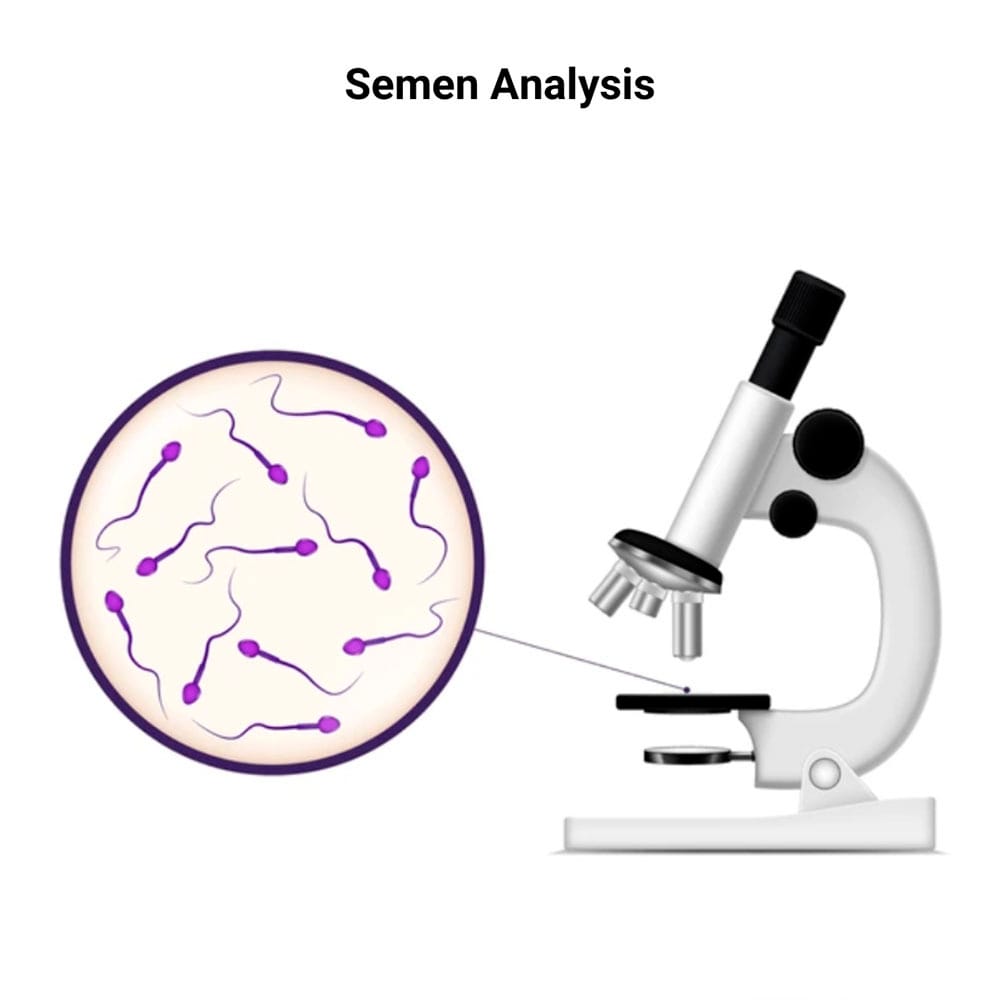What Is Semen Analysis?
 Sperm analysis is a laboratory test that measures the quality and health of your sperm. A sperm count test can uncover male-related fertility issues and other factors that can affect fertility. If you and your partner are struggling to get pregnant, the sperm test results inform your doctor about necessary treatments depending on what’s found. It’s also used to check if a vasectomy has been successful, detect infections or evaluate your reproductive health.
Sperm analysis is a laboratory test that measures the quality and health of your sperm. A sperm count test can uncover male-related fertility issues and other factors that can affect fertility. If you and your partner are struggling to get pregnant, the sperm test results inform your doctor about necessary treatments depending on what’s found. It’s also used to check if a vasectomy has been successful, detect infections or evaluate your reproductive health.
The best sperm test services in NYC are found at Cohen Medical Practice (CMP) where Dr. Felix Cohen and his team offer modern diagnostics and treat the full spectrum of gynecological conditions.
In addition to sperm tests, other fertility services they offer include:
How Can I Collect a Semen Sample?
The semen sample is usually collected through masturbation in a private room at the doctor’s office. You may get specific instructions from your doctor before your semen analysis. You should avoid ejaculating for at least two to seven days before the test. If you want to improve the quality of your sperm, cut down on your alcohol, caffeine and certain medications.
Sperm has a short lifespan outside the body, especially in environments where temperatures fluctuate. If you’re more comfortable collecting the sample at home, you must deliver it to the lab within 30 to 60 minutes to maintain accuracy. You’ll receive a sterile container to place the sample in.
When collecting the sample:
- Take a shower, wash your hands and penis with soap to ensure you’re clean.
- Avoid using saliva and any lubricant unless specifically provided by your doctor.
- Don’t use a condom to collect your sample, as spermicidal agents can alter the results.
- Ejaculate directly into the sterile container and avoid touching the inside of the container.
Make sure you collect the first part of your ejaculation as it carries the most sperm-rich fluid. Close the lid of the container immediately after collection. You need to clearly label the container with your name, date of birth and the time and date of your sample.
What Does a Semen Analysis Measure?
The sperm test examines things like your sperm count, which measures the amount of sperm in your semen. Sperm are typically shown as the number of sperm per milliliter, a normal count is usually 15 million per milliliter or higher. Sperm need to swim properly to reach and fertilize the egg, so the analysis checks the percentage of motile sperm and the quality of their movement. A low sperm count reduces your chances of fertilization.
Other factors in semen analysis include:
- Sperm morphology. This measures the shape and size of your sperm. Healthy sperm are oval shaped with a long tail that helps them move.
- Semen volume. This checks the amount of semen you produce during ejaculation. A normal volume ranges from 1.5 to 5.0 milliliters.
- pH Level. The pH of your semen is measured to check its acidity or alkalinity. Normal semen pH ranges between 7.2 and 8.0.
- Sperm vitality. This finds out the percentage of live sperm in your semen. If a high number of sperm are dead, it may indicate an issue affecting your fertility.
A sperm analysis also checks the time it takes to liquefy; semen is a gel-like substance that liquefies within 20 to 30 minutes after ejaculation. It could be an issue with sperm movement and fertility if the liquefaction time is longer. The presence of white blood cells in your semen may signal an infection or inflammation in your reproductive tract.
What Can I Do after Receiving Abnormal Semen Analysis Results?
If your sperm count tests shows low sperm count, poor motility or abnormal morphology, you may find it harder in conceiving naturally. You must schedule a follow-up with your CMP doctor to talk about your results in detail. Your doctor may recommend additional diagnostic tests like blood tests that checks your hormone and testosterone levels, which may be affecting your sperm production.
They can also reveal genetic issues, like problems with your Y chromosome, that could be impacting your ability to produce sperm. Based on your results, other tests may include:
- Hormonal testing to check your hormone levels and see if any imbalances exist
- Genetic screening, which identifies genetic conditions that could be affecting your fertility
- Urinalysis after ejaculation that checks for any issues with sperm transport
- Testicular biopsy to assessing the health of your sperm-producing tissues
- Imaging tests that can identify any blockages that might be preventing sperm from being released into your semen
Dr. Felix Cohen at CMP in New York specializes in advanced fertility services that could help you plan the family you desire. With years of experience in fertility and gynecology services, Dr. Cohen and his team help families overcome fertility issues with successful treatments. Contact Cohen Medical Practice (CMP) today for a consultation.

